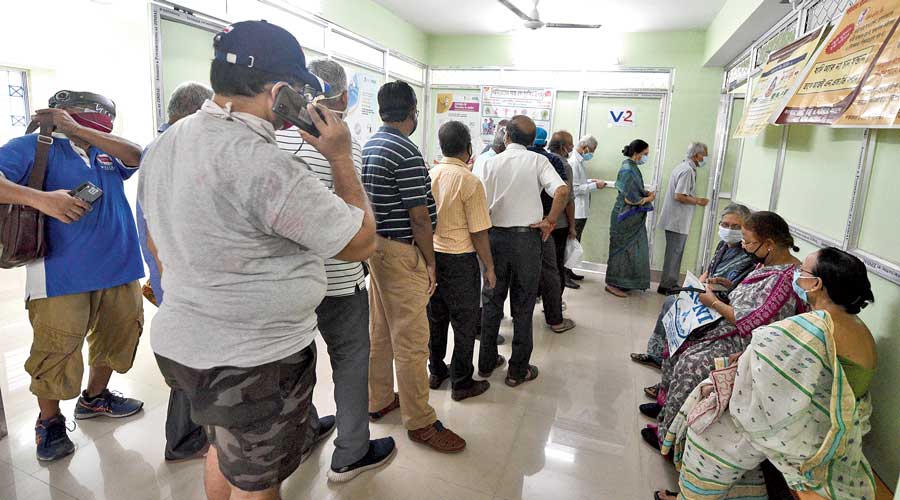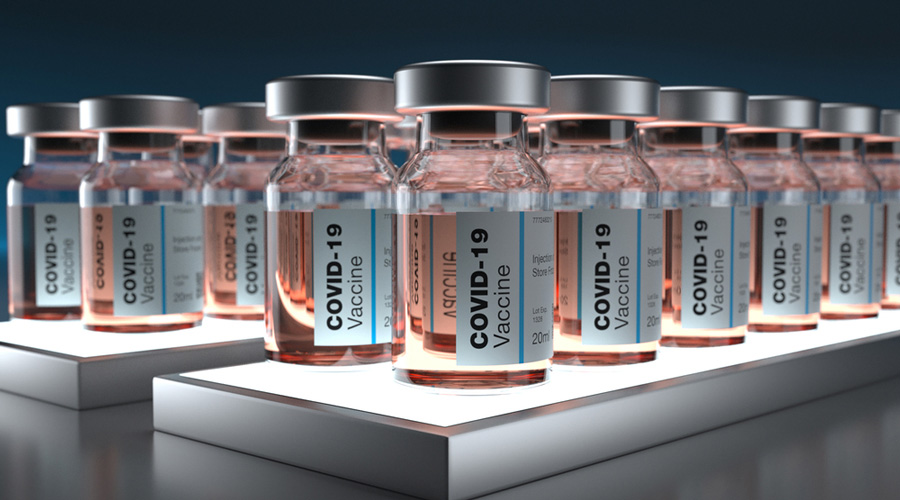The Centre on Monday told the Supreme Court that “all citizens of all age groups will get free vaccination throughout the country”.
Then came the catch in the Centre’s affidavit: the reason for the magnanimity is “all the state governments have announced free vaccination for the population group of 18-44 years”.
However, regardless of the claim about free vaccine for “all citizens”, the affidavit said in a different paragraph that many would be paying for the jab at private hospitals.
The official declaration came at a time several leaders, including Mamata Banerjee and Rahul Gandhi, have repeatedly appealed to the Prime Minister to make the vaccination free across the country.
If the court allows the Centre to stick to the stand articulated in the affidavit, the cash-strapped states will have to bear the cost of vaccinating most Indians.
The Centre’s vaccination policy also allows private hospitals to buy and administer the vaccines, and the manufacturers to set the prices which many have complained are too high.
“It is however submitted that this price factor will not have any impact on the ultimate beneficiary, namely, the eligible person getting the vaccine since all state governments have already declared their policy decision that each state will be administering vaccine to its residents free of cost,” the Centre’s affidavit said.
“It is also submitted that citizens of 18 to 44 years are getting vaccination free of cost as all the state governments have announced free vaccination for this population group of 18-44 years. Thus, all citizens of all age groups will get free vaccination throughout the country.”
However, in the same breath, the affidavit says: “Those who choose to be vaccinated and can pay the price can go to private hospitals.”
It adds that this option will “facilitate better access and will reduce the operational stress on the government vaccination facilities as those who can afford to pay and prefer to go to a private hospital would not come to government vaccination facilities reducing the crowd....”
With the manufacturers now charging private hospitals Rs 600 (Covishield) and Rs 1,200 (Covaxin) per dose, and with the hospitals expected to add a further charge, people will be shelling out a far larger sum than the Rs 250 they were paying before May 1.
Till April 30, the Centre was buying the entire vaccine stocks from the manufacturers and providing the doses free to the states, which administered free jabs to priority groups such as healthcare and frontline workers and those aged 45 or above.
However, to ease the burden on their hospitals, the states were free to supply a part of the consignments to private hospitals, which charged people Rs 250 per dose and paid the Centre Rs 150 per dose.
Therefore, millions of people aged 45 and above have already paid for their jab.
Since May 1, the Centre has opened up vaccination for all adults. Under its new policy, it buys half the vaccine produced and provides it free to the states to inoculate those aged 45 or above.
The remaining half has to be bought by the states and private hospitals from the manufacturers.
Controversially, the manufacturers have been allowed set a differential pricing.
The Serum Institute of India has set the Centre a price of Rs 150 per dose of Covishield while the states are being charged Rs 300 and private hospitals Rs 600, and Covaxin-maker Bharat Biotech has set prices of Rs 150, Rs 400 and Rs 1,200, respectively. Serum later said the Centre would be charged for subsequent doses at the same rate (Rs 300 per dose) as the states.
While the states, left in the lurch by the Centre, have decided to vaccinate everyone free, those going to the private hospitals will be paying a hefty sum.
In the affidavit, the Centre has justified the higher price for the states and claimed credit for getting each company to charge the states a uniform price.
“Due to consultations and ‘persuasion’ by the central government both the manufacturers of vaccine, Bharat Biotech and SII, have declared their respective prices which are uniform for all state governments,” the affidavit said.
“It is pertinent to note that the central government by nature of its large vaccination programme, places large purchase orders for vaccines as opposed to the state governments and/ or private hospitals and therefore, this reality has some reflection in the prices negotiated.”
It added: “Thus, while it is ensured that the two vaccine manufacturers are not unduly enriched out of public money, the citizens are not supposed to make any payment for getting both dose of the vaccine.”
The affidavit does not explain how the companies will not be “enriched”, nor, after everything that went before, how the citizens “are not supposed to make any payment”.












